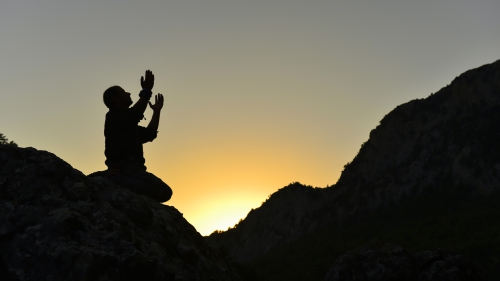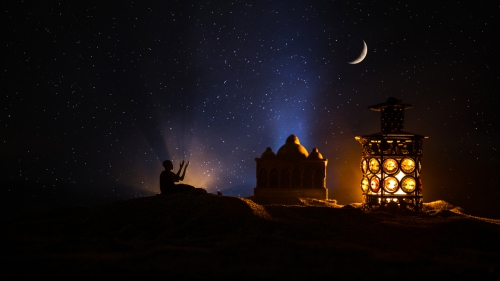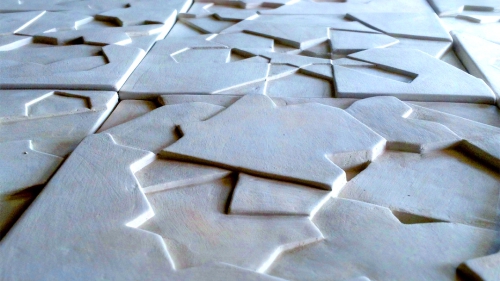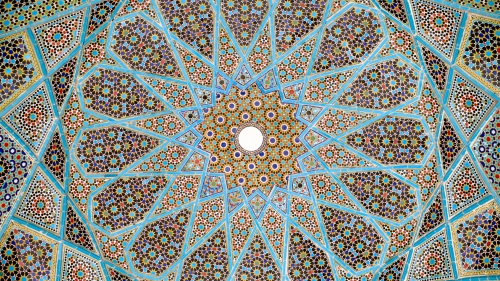Ten-Point Plan For What To Do On The Night Of Power

We prepare ourselves so well for Laylat’l-Qadr in terms of what it means to us and when it will be, but when we get there many of us don’t know what to actually do on the night itself and achieve the success being offered!
So, we came up with a plan as gleaned from the actions of the blessed early generations:
1. Prepare a list before the evening starts listing all of the specific du‘ās you want to make. This is not necessarily a Sunnah of course – this is only because the Muslims of our generation are not so great at ritual worship and making long, detailed meaningful du‘ās by ourselves; thus we need help, direction and structure.
2. Pray ‘Ishā in Jamā‘ah – that’s half the night in prayer achieved as stated by the Prophet (ṣallallāhu ‘alayhi wa sallam) in Muslim, and that’s a portion of Laylat’l-Qadr achieved as stated by some of the Salaf like Ibn al-Musayyib and al-Shāfi‘ī.
3. Pray with the Imām, don’t leave him after 4 rak‘ah or 8 rak‘ah or whatever. Finish the Tarāwīḥ prayer with him and the Witr prayer as well, even if he prays it early in the night. You have now achieved the reward of praying the full night, which if it is Laylat’l-Qadr, then you’ve in sha Allah achieved the full reward of standing the night of Laylat’l-Qadr as stated by the Prophet (ṣallallāhu ‘alayhi wa sallam).
4. Avoid setting up two night prayers, calling them Tarāwīḥ and Tahajjud. Either elongate one of them to last longer in the night, or just pray one of them completely with the Imam with Witr. This is the Sunnah of the Prophet (ṣallallāhu ‘alayhi wa sallam) in Ramaḍān: a single congregational prayer, not two separate ones, is the action of the Prophet (ṣallallāhu ‘alayhi wa sallam).
5. Make a HUGE amount of du‘ā during ALL the rest of the time available before Fajr starts.
6. If you feel the need to take little breaks in the night, only do the following in them:
a) Give plenty of Ṣadaqah, carefully and judiciously, to the highest-returning projects as possible, across as many fields and initiatives as possible, as varied as possible, as much as possible. Take advantage of the hugely multiplied rewards on offer. You can plan this in advance online to save time browsing on the night itself.
b) Read or reflect on something beneficial about Allah or read the Qur’ān itself. Focus on His Mercy. And then call upon that Mercy later in your du‘ā.
c) Keep your tongue busy with dhikr. Don’t waste a single second talking, watching or listening to anything from the dunya if possible. It’s just not worth it. It can wait one night.
7. If you want to bank on just one du‘ā to really focus on during this night then choose the best Prophetic one of:
اللَّهُمَّ إِنَّكَ عَفُوٌّ تُحِبُّ الْعَفْوَ فَاعْفُ عَنِّي
Allāhumma innaka ‘afuwwun tuḥibbul ‘afwa, fa‘fu ‘annī
(O Allah, indeed you are the One who pardons, indeed you love to pardon. So please pardon me.)
8. Reduce the amount of food and time you will spend on eating Suḥūr so that you can spend more time making du‘ā. This night is about standing in prayer, yes, but if you’ve done the above, then that standing is sufficient. Now make the night allabout du‘ā.
9. Pray the Fajr prayer in Jamā‘ah with the Imām. You have just achieved standing the entire night in prayer as stated by the Prophet (ṣallallāhu ‘alayhi wa sallam) in al-Bukhāri. So that’s all of Laylat’l-Qadr in standing achieved if it was indeed that night. Doing this is like a double guarantee for the night
10. Finally, after your dhikr until Sunrise and your Shurūq prayer, get to sleep quickly so as to not to sleep too much during the day because there’s more ‘ibādah to be done on the 27th day too, to complete a successful night of al-Qadr as per the actions of the Salaf.
( Reprinted from AlMaghrib Institute )
Topics: Last Ten Days Of Ramadan, Night Of Power (Laylat Al Qadr), Ramadan Channel: Ramadan - Day 21, Ramadan - Day 27
Views: 15639
Related Suggestions


























